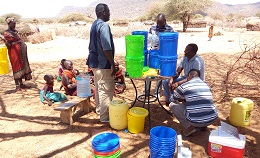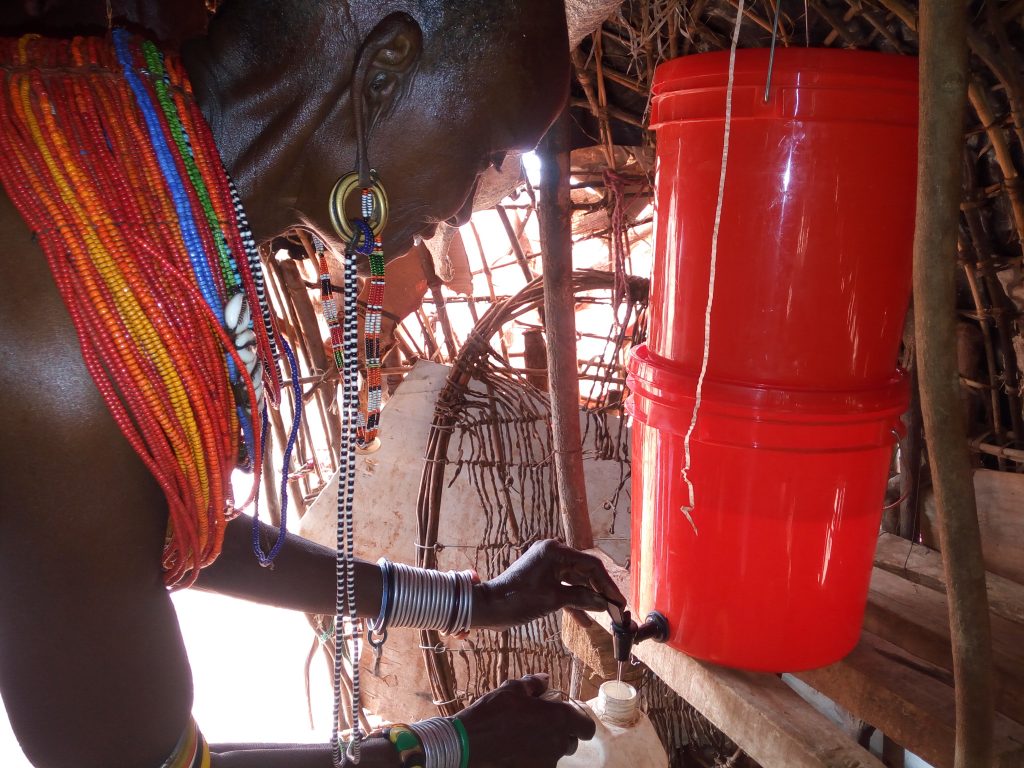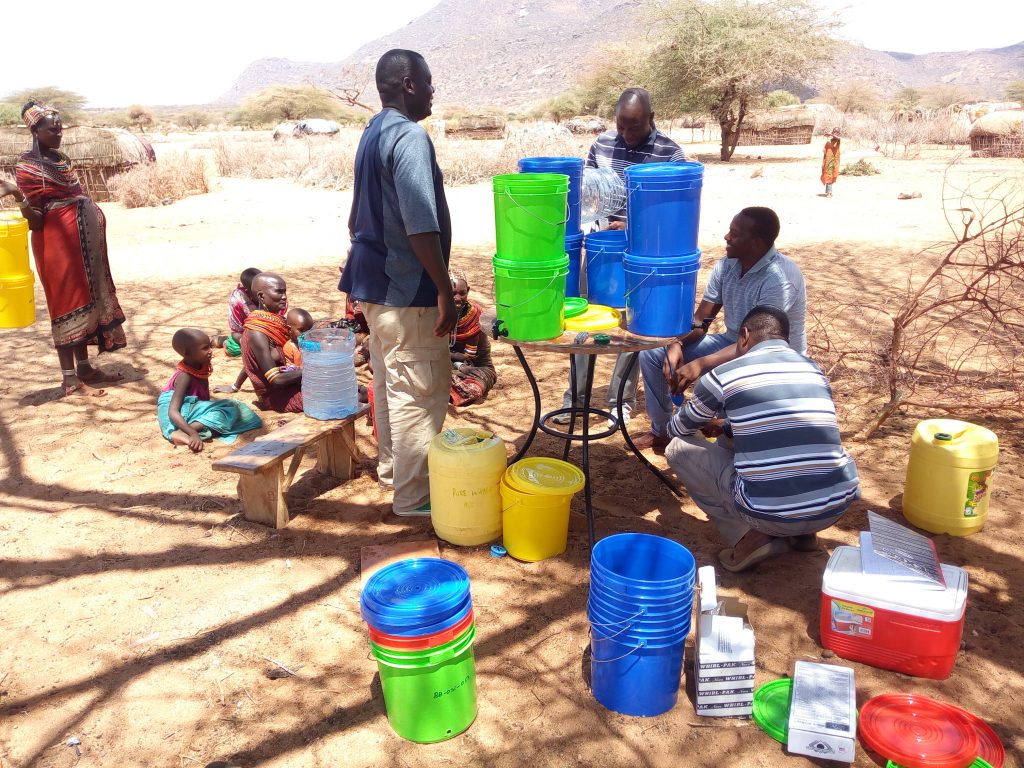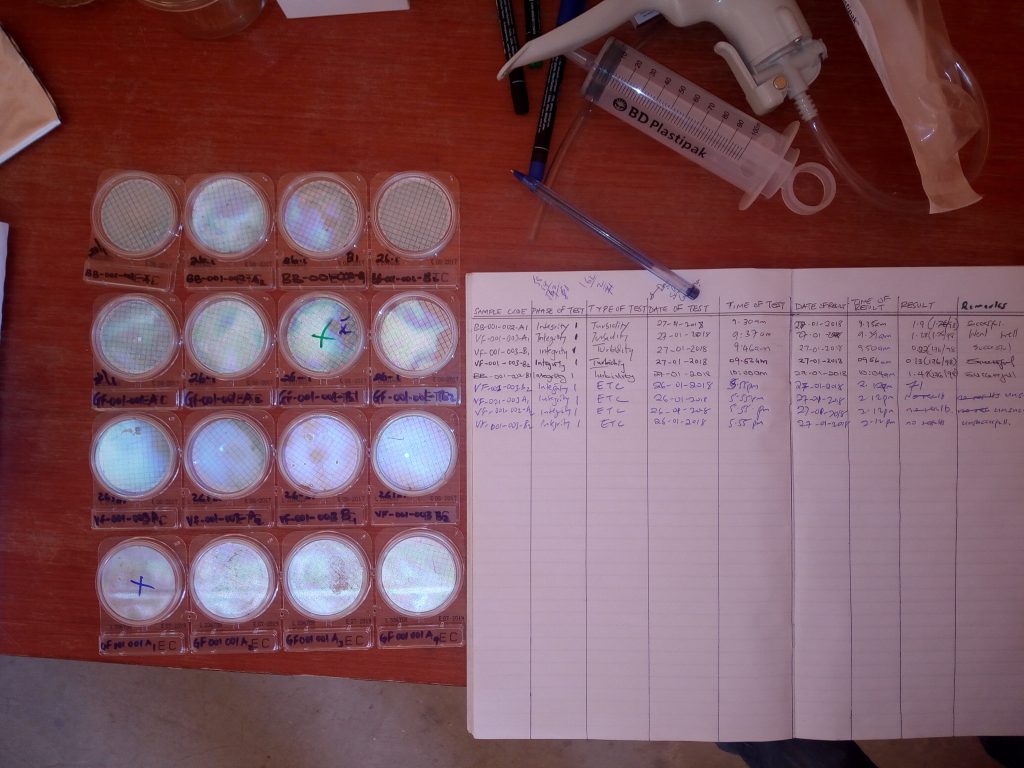Shaping the future: Our strategy for research and innovation in humanitarian response.

Shaping the future: Our strategy for research and innovation in humanitarian response.


In our last blog from Kenya, we described how we are evaluate five types of water filters in a small, pastoralist community called Ndikir in Marsabit county, an area in the North frequently affected by droughts. Community members received their first filter in February and tested it for four months, during which we collected data on the performance and ease of use of the filter through measurements, water quality tests, observances, and structured and open-ended interviews. Finally, in July we collected the filters from the households and randomly assigned them a new filter, making sure that each household received another filter type to have a comparison of two products.

As not all filters are equally liked, we had expected that some households would be eager to get a new filter whereas others would prefer keeping “their” filter. We had therefore earlier started to prepare the community for this event through regular meetings and transparent communication. When the day arrived, we could sense the excitement of the community members. Each family drew a lot to find out which filter type they would get this time. Before the filters were placed in the households, they were cleaned. Once distributed to the households, we carried out integrity tests to ensure that all filters are treating the water properly.

In total, 155 households are participating in the second testing round that lasts again for four months. Our team visits each family three times for monitoring purposes during this period. Compared to the first round of monitoring, community members are visibly more familiar with the use and design of household water filters.
The fact that they will have evaluated two different filters in their daily setting will enable them to provide in-depth feedback during the extended qualitative semi-structured interview that we will conduct with each household at the end of the four months. In addition, we will discuss with selected community members the features of the five different filter types, their advantages and critical attributes, and develop ideas on the desired ideal filter in focus group discussions and a co-design workshop.

In order to ensure safe drinking water for the community of Ndikir beyond the duration of the study, the filters of the second testing round will remain with the families for good.

 Please upgrade your browser
Please upgrade your browser
You are seeing this because you are using a browser that is not supported. The Elrha website is built using modern technology and standards. We recommend upgrading your browser with one of the following to properly view our website:
Windows MacPlease note that this is not an exhaustive list of browsers. We also do not intend to recommend a particular manufacturer's browser over another's; only to suggest upgrading to a browser version that is compliant with current standards to give you the best and most secure browsing experience.